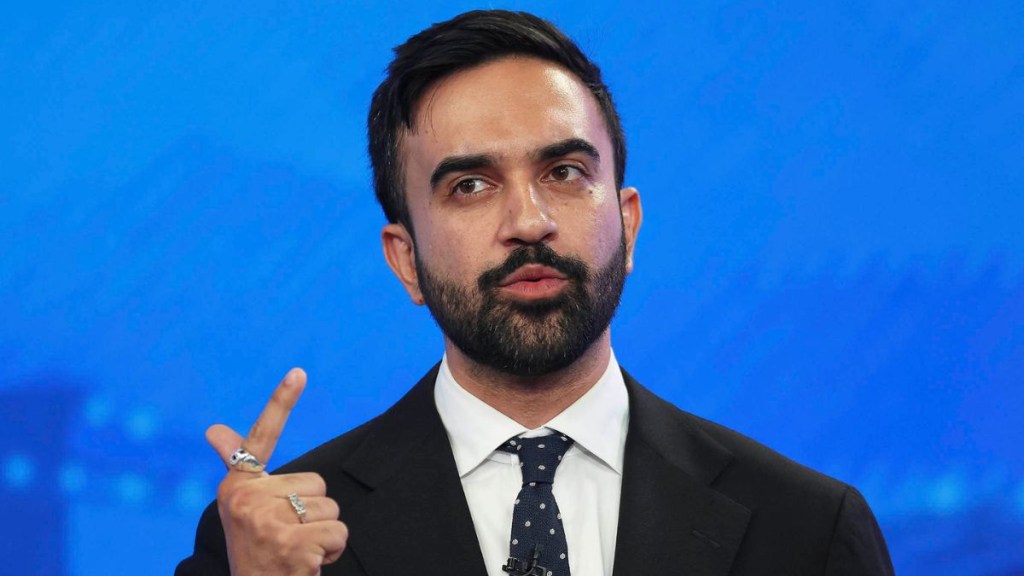By Jamal Mecklai, CEO at Mecklai Financial
Zohran Mamdani, who is a shoo-in to be elected as mayor of New York City on November 4, is to my mind a worthy successor to Martin Luther King and Nelson Mandela, who were the last great global leaders we have seen. And while NYC may seem a little parochial in comparison with the entire world, I believe Mamdani’s rise is a response to a world that appears to have reached a breaking point.
He is a young man (34), proudly Muslim (certainly not the most popular religion in an increasingly MAGA-fied US), smart, social media savvy, photogenic, and, most importantly, eminently sensible. His platform is built to make life in New York affordable for all, with a focus on childcare, public transportation, city-run grocery stores, and controlling rents. He will win by a landslide because these are the issues that the majority of New Yorkers (and, indeed, people across the US) are concerned about. In a 2025 study, Deloitte found: “A total of 48% of Gen Zs and 46% of millennials don’t feel financially secure, up sharply from 2024, when it was 30% and 32%, respectively. Over half said they live paycheck to paycheck and a third struggle with expenses. One in three have side jobs, predominantly for income but also to gain skills or feel more fulfilled.”
I note that this difficulty in making ends meet now extends to a much wider cohort, including some Gen X-ers who would normally be described as upwardly mobile. A week or so ago, I met a wonderful young woman, my daughter’s closest friend, who lives with her family in the Bay Area. While they are more than well-to-do, she surprised me by talking about how the price of eggs has risen to $12 a dozen (from $5 just a few months earlier) to where she and her husband were even wondering whether they would have to cut back on the two eggs that each of them has for breakfast every day.
It is clear from the spreading discontent that capitalism has become an abject failure, sliding downwards since Ronald Reagan first came up with the “trickle down” theory—let the rich make more money so that they invest it soundly and the benefits trickle down. It has resulted in the most abysmal distribution of income and wealth in New York, in the US, and in the world. The balance between returns on capital and on labour that capitalism was supposed to optimise has fallen apart, as a result of which country after country posts statistics like the US, where the top 1% of the population have nearly twice as much wealth as the bottom 90%.
Of course, an assortment of billionaires is raging against Mamdani, using racist tropes and any other weapon they can find to attack, in particular his plan to increase taxes on millionaires (by a mere 2%), on the most profitable corporations (to a rate that is the same as that charged in New Jersey), and closing loopholes that allow super luxury properties to be undervalued for tax purposes (the most egregious being a $224-million penthouse being valued at $15 million for property tax). And while extremely wealthy people across America (including Trump) are very upset with him—it’s funny how so many of them seem to be always angry—the New York populace will ensure that he makes history.
In fact, his victory will be part of a plethora of political protests by the youth worldwide—over the past two years, protests have broken out and sustained, and, in some cases, brought down governments in Sri Lanka, Bangladesh, Indonesia, the Philippines, Kenya, Nepal, Peru, Morocco, and Madagascar.
Mamdani’s victory in New York—the centre of capitalism—will be a beacon to all of these movements that can turn the tide towards a more humane, inclusive, and environmentally sound politics.
To be sure, billionaires in government will resist, drawing on all their financial muscle, technology skills, and legal and punitive connections to thwart these, and the going won’t be easy. But, looking at Mamdani’s smiling face, it does feel like the world is on the cusp of a surge towards sunshine.
